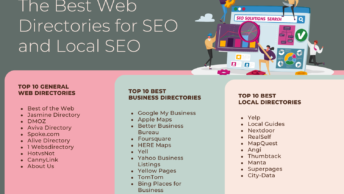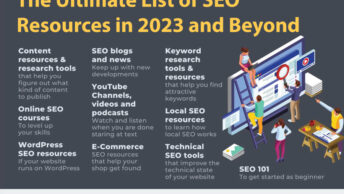
Whether you want to promote a business or improve your own professional visibility, being interviewed online can help. You want to make yourself available as an authority source in your industry, but how do you go about it? How can you get the attention of people in your niche who are looking for professionals to interview? More importantly, why are online interviews important?
Benefits of Being Interviewed Online
Any time you’re asked to do an interview as an expert source, there are positive outcomes. For example the more often your name and quotes appear in reputable print, broadcast, or online interviews, the more likely it is that people will start to recognize your (or your company’s) name. The idea is to go beyond name recognition though, and more towards trust. When people interview you because they trust your feedback on a certain type of subject matter, that trust can translate to other things (for example, it can mean more book sales if you’re an author).
While all interviews can offer this recognition or visibility, online interviews can have added benefits. Let’s still assume you’re an author, and let’s compare an online interview with a major news source in the niche of your book with a radio interview. Both can reach a large audience potentially, allowing you to promote your book. But an online interview may make it easier to drive direct book sales (because you can sometimes have a link included in that interview directly connecting potential buyers to your sales page, whereas with a radio interview you have to rely on listeners hearing the URL, remembering it until they’re at a computer, and then manually choosing to visit your website–or buy your book in a brick and mortar store).

The online interview allows direct connections between the reader and your website where people can find out more information. A link in an online interview can do even more though. Links from authority websites (which could range from a major news site to a related blog in the niche) help to increase your own site’s search engine rankings over time. What that means is that the links in your online interviews will continue to help more people find your site (and buy your products) for weeks, months, or even years to come by helping to boost your search engine visibility.
Speaking of search engines, keep in mind that an online interview will likely be indexed in the host’s archives. When their own interview page is archived and indexed in search engines, it will also continue to attract traffic over time, sending more people to your website through the link contained within it.
How to Make Yourself Available for Online Interviews
Now that you know why online interviews can be beneficial to your business or career, let’s explore some of the ways you can present yourself as a possible interviewee or expert source in your industry.
- Pitch Letters – These are short business letters which you use to pitch a specific story angle or idea to your choice of websites or blogs. In the pitch letter, you should explain why you’re an authority source worth consulting on the topic. (A pitch shouldn’t revolve around your own company – to release company news, use a news release instead.)
- Letters of Introduction – These are similar to pitch letters, except you won’t suggest a specific story idea. Instead, you just introduce yourself and your credentials to hand-picked journalists and bloggers, letting them know that you’re open to future interviews if they’re later writing a story where your expertise could come in handy. Don’t forget to let them know how to contact you.
- Expert Directories – Another option (and a good one if you’re currently relatively unknown, where a pitch letter may not be enough) is to sign up with expert directories. You sign up and list your areas of expertise. You give permission for journalists to contact you about stories through the site, and those writers visit the directories to browse for possible sources when they’re researching a story. Some of these services are free, and others require a paid membership. Two popular options are ProfNet and ExpertClick.
- Help a Reporter Out (HARO) – HARO is like an expert directory that works in reverse. Rather than writers searching for listed experts, they put out calls for certain types of people they want to interview. You can sign up to receive daily emails listing source calls, and when someone is looking to interview a source in your specialty area, you can contact them.

If you want to make yourself a more attractive source to large online media outlets, try to get a few smaller niche interviews under your belt first. You can do that by personally reaching out to bloggers, who are often happy to have expert sources (especially if you pitch them with a story idea).
Get comfortable with all of the different types of interviews you may be asked to do, from telephone to email interviews. Give outlets multiple options for contacting you, and try to be available at their convenience (news sites can have short deadlines, so if you’re not available, they’ll find someone else who is).
Whatever you do, don’t pass up the opportunity to get interviewed online. No matter what your niche or industry is, chances are good that someone who has a reach with your audience would love to hear from you!







[…] ’single’ links first. This could include a handful of directories, business listings, interviews and other low hanging fruit.Try to get a good flow of continuous links going at the same time, for […]
[…] ’single’ links first. This could include a handful of directories, business listings, interviews and other low hanging fruit.Try to get a good flow of continuous links going at the same time, for […]
Thank you for the tip on Haro.
I fully agree with your thoughts. Perhaps it is also worth mentioning that the other side of the coin is that the interview will provide the interviewer with original and interesting content. This is big upside for the interviewer and a change from the usual old blah blah on the blog.
Thank you for the great article, very good information.
I didnt think of it like this, videos are probably more interesting to watch than an article, hmmmm
Nice post. Videos make a great impression on the viewer, and the script of the video can be transcribed and published on the same page.